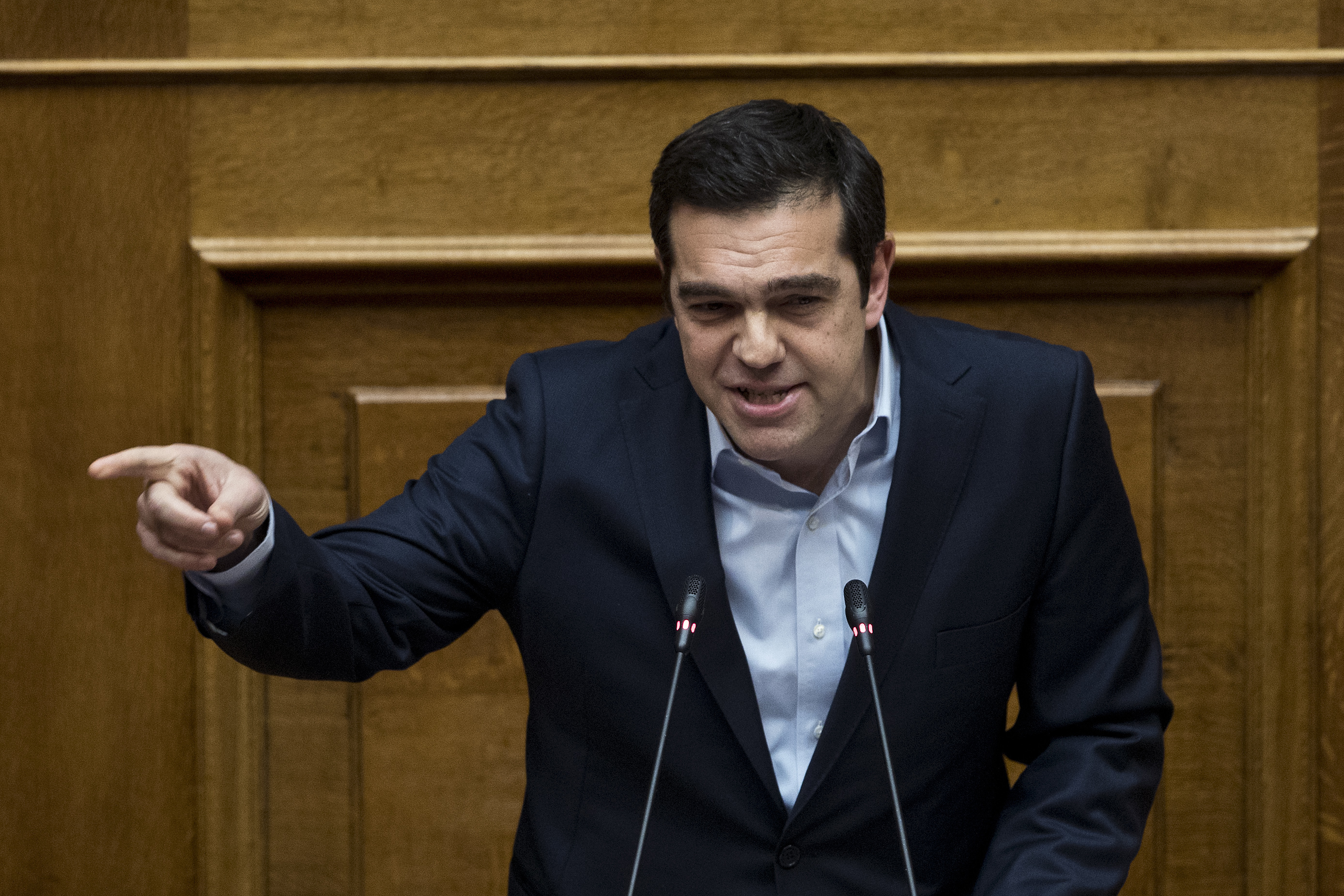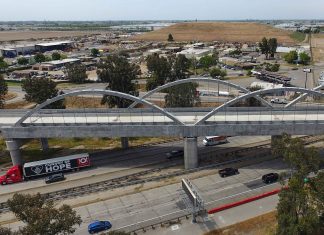
By DEREK GATOPOULOS & NICHOLAS PAPHITIS
Associated Press
ATHENS, Greece (AP) — Greek lawmakers, eying the end of eight years of bailout programs, approved more austerity measures late Monday, as strikes and mass protests brought much of Athens to a standstill.
Protesters in Athens sprayed police with red paint outside parliament as some 20,000 people marched in anti-government rallies in the capital and Greece’s second largest city, Thessaloniki. During the vote on the more than 1,500-page bill, police engaged in brief but intense clashes with rock-throwing demonstrators and used pepper spray to disperse them. No arrests or injuries were reported.
The reforms approved by 154-141 votes include tougher conditions for unions to call strikes, speedier property foreclosures, and cuts in family benefits. They were demanded by lenders for Greece to receive further bailout funds.
Greece formally ends its bailout program in August but has promised lenders at least two more years of austerity as it seeks more generous repayment terms on its loans from eurozone countries and International Monetary Fund. The country has depended on emergency loans since 2010 after it lost the ability to raise money on international bond markets.
Prime Minister Alexis Tsipras said approval of the proposed measures will bring Greece “just one step from the end of the bailout.” “In the summer, we will … leave behind a tough, unfair and harmful period,” he said.
Labor unions strongly oppose the provisions on strikes, which require a higher turnout for local level unions to be able to decide on industrial action.
Strikes shut down all public transport in the Greek capital Monday, while state-run schools and public hospitals also faced disruptions as teachers and doctors participated in work stoppages. Dozens of flights were either rescheduled or canceled due to a three-hour walk-out by air traffic controllers.
Several hundred people marched peacefully to Parliament in the morning, in a demonstration organized by civil servant unions.
The demonstrations came amid signs of growing investor confidence in Greece following years of belt-tightening that has brought the annual budget into far better shape. Even though Greece’s borrowing rates in the markets have fallen to pre-crisis levels, the country is still burdened with sky-high debts worth around 180 percent of annual GDP while poverty levels in the European Union are among the highest in the European Union.
The ongoing hardship has seen the Tsipras’ left-wing government fall behind the rival conservatives in opinion polls. Opposition leader Kyriakos Mitsotakis accused Tsipras of taking credit for imposing measures that he was elected for opposing.
Mitsotakis told parliament: His government “has turned lying into a profession and cynicism into an art.”















